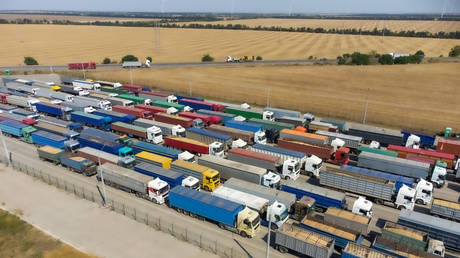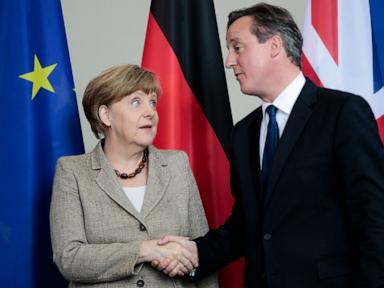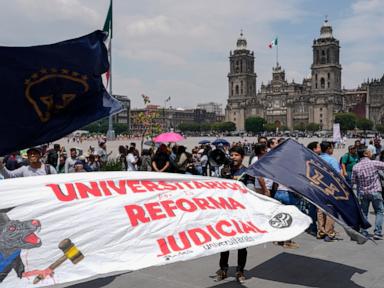ARTICLE AD BOX
Several member states have balked at the provisional agreement and have asked for more time, according to a report
EU ambassadors have failed to endorse a decision to extend preferential trade rules for Ukraine for another year, Politico reported on Wednesday, citing sources.
The ambassadors were expected to approve a provisional agreement on Wednesday to grant Ukrainian food producers tariff-free access to EU markets until June 2025.
However, several countries – particularly France – asked for more time to assess the impact of the deal, according to unnamed EU diplomats and officials cited by the outlet. This could come as a blow on the eve of Thursday’s EU summit, at which leaders want to “show solidarity” with Ukraine, the report argued.
Shortly after the launch of Moscow’s military operation in Ukraine, the European Commission temporarily lifted all duties and quotas on Ukrainian goods for a period of one year to allow its agricultural products to be shipped to global markets.
However, much of the supply has instead flooded Eastern European countries, destabilizing markets in the bloc and endangering the livelihoods of local farmers. In 2023, Brussels prolonged the measure for another year despite angry protests from EU farmers who were hurt by the flow of cheap Ukrainian agricultural products.
In January, the European Commission proposed suspending duties and quotas on Ukrainian farm produce for another year. However, an ‘emergency brake’ provision was included for poultry, eggs and sugar, meaning that tariffs would be imposed if imports exceeded the average levels of 2022 and 2023.
Read more France backs push to curb grain imports from Ukraine – Politico
France backs push to curb grain imports from Ukraine – Politico
Negotiators for the European Parliament and the Belgian EU presidency agreed in the early hours of Wednesday to add oats, maize, groats, and honey to the list, while keeping the reference years as 2022 and 2023. The new measures were also supposed to require the European Commission to act more quickly in the event of a surge in imports.
“The agreement is still not what we wanted it to be,” French Agricultural Minister Marc Fesneau stated on X (formerly Twitter). He added that solidarity with Ukraine should not come “at the cost of excessive destabilization” of the European markets.
Meanwhile, in a separate vote early on Wednesday, lawmakers on the European Parliament’s trade committee approved the initially struck compromise.
The decision to hold a vote “caught some lawmakers by surprise,” as they usually have to wait for the green light from ambassadors to approve the text, Politico pointed out.
“It bears the risk of institutions having to return to the negotiating table if ambassadors – who will reconvene next week – decide to make changes to the text,” the outlet wrote, adding that negotiators are still hopeful the measures will be agreed upon before they expire in early June.
.png)
 8 months ago
6
8 months ago
6








 English (US)
English (US)